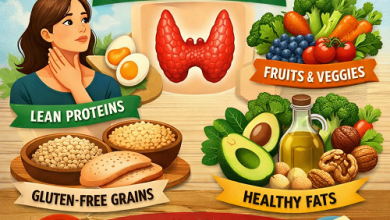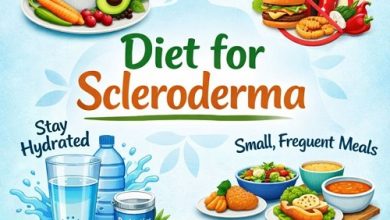Soft Food Diet After Oral Surgery: Best Meals to Speed Up Recovery

Recovering from oral surgery can be a delicate process. Whether you’ve had your wisdom teeth removed, undergone dental implant surgery, or any other oral procedure, what you eat afterward can significantly influence how quickly and comfortably you heal. Following a soft food diet after oral surgery helps minimize discomfort, prevents complications, and provides your body with the essential nutrients needed for tissue repair.
What a soft food diet is, why it’s essential after oral surgery, what foods to eat (and avoid), plus meal ideas and tips to make your recovery smooth and speedy.
Understanding the Importance of a Soft Food Diet After Oral Surgery
Why a Soft Food Diet Matters
After oral surgery, your mouth and jaw are often swollen, sore, and vulnerable to infection. Eating solid or crunchy foods too soon can disrupt stitches, irritate wounds, or cause bleeding. A soft food diet ensures that you:
- Avoid damaging surgical sites
- Minimize pain and swelling
- Prevent dry socket (a common post-extraction complication)
- Get enough nutrients to promote faster healing
Healing Stages and Nutritional Needs
During the recovery process, your body requires specific nutrients to rebuild tissues and fight infection. These include:
- Protein – Repairs tissue and supports immune function
- Vitamin C – Promotes collagen formation for wound healing
- Zinc – Helps regenerate tissue and boosts immune defense
- Calcium and Vitamin D – Strengthen bones and aid in recovery (especially after dental implants)
- Iron – Replenishes red blood cells and prevents fatigue
A soft food diet allows you to consume these nutrients comfortably, ensuring optimal healing without aggravating your mouth.
What Is a Soft Food Diet?
A soft food diet consists of foods that are easy to chew, swallow, and digest. These foods are usually moist, smooth, and require minimal effort from your jaw. They are perfect for people recovering from oral surgeries, dental extractions, or jaw treatments.
Characteristics of Soft Foods
- Smooth or mashed texture
- Easy to swallow without chewing
- Gentle on gums and teeth
- Low in acidity and spice
Common examples include mashed potatoes, yogurt, soups, scrambled eggs, and smoothies.
Top Benefits of Following a Soft Food Diet After Oral Surgery
- Reduces Pain and Irritation
Soft foods minimize the risk of pressure or friction on the surgical site, keeping pain under control. - Prevents Complications
Avoiding hard or sticky foods reduces the chances of dislodging blood clots or sutures. - Supports Nutrition and Healing
With careful planning, you can maintain a nutrient-rich diet that promotes tissue repair and boosts your energy. - Eases Digestion
Soft foods are gentle on the stomach, which can be helpful if you’re taking pain medications that cause nausea. - Improves Comfort During Recovery
You’ll be able to eat without straining your jaw, especially useful if you experience stiffness or swelling.
Foods You Can Eat After Oral Surgery
Here’s a breakdown of the best foods to include in your soft food diet after oral surgery, categorized for convenience.
1. Dairy and Protein-Rich Foods
Protein is essential for tissue healing, and soft dairy products are easy to consume.
- Yogurt – Smooth, creamy, and full of probiotics that support gut health. Choose unsweetened varieties to avoid sugar irritation.
- Cottage Cheese – High in protein and easy to swallow.
- Scrambled Eggs – Soft, fluffy, and rich in protein and vitamins.
- Smooth Nut Butters – A good source of healthy fats and protein (avoid chunky versions).
- Protein Shakes – Great for energy and healing, especially if you struggle with appetite.
2. Fruits and Vegetables (Mashed or Blended)
Fruits and vegetables are full of vitamins and minerals essential for recovery.
- Mashed Bananas – Soft, gentle on the mouth, and rich in potassium.
- Applesauce – Easy to eat and provides natural sweetness.
- Avocado – Packed with healthy fats and vitamin E for healing.
- Pureed Carrots or Peas – Provide fiber and nutrients without requiring chewing.
- Smooth Soups (like pumpkin or butternut squash) – Warm (not hot) soups can soothe soreness and deliver antioxidants.
3. Starches and Grains
Soft grains and starchy foods offer energy and are easy to prepare.
- Mashed Potatoes – A classic soft food rich in comfort and carbohydrates.
- Oatmeal or Cream of Wheat – Gentle on the mouth and easy to flavor with fruit or honey.
- Pasta and Noodles (well-cooked) – Avoid sauces with seeds or spice.
- Soft Rice or Risotto – Mild and filling, perfect for lunch or dinner.
4. Smoothies and Shakes
Smoothies are excellent because they’re nutrient-dense and can be customized with fruits, vegetables, and protein.
Try combining:
- Bananas + Greek yogurt + spinach + almond milk
- Berries + protein powder + oats + coconut water
- Avocado + cocoa powder + honey + milk
Tip: Avoid using straws during the first few days after oral surgery. The suction can dislodge blood clots and delay healing.
5. Soups and Broths
Soups are comforting, hydrating, and full of nutrients.
- Chicken or Vegetable Broth – Easy to digest and soothing for sore mouths.
- Lentil or Split Pea Soup – Protein-rich options that can be pureed for smoothness.
- Cream of Mushroom or Tomato Soup – Smooth and flavorful (avoid overly acidic or spicy ones).
6. Desserts and Treats
It’s okay to enjoy soft treats while you recover!
- Pudding or Custard – Smooth, sweet, and easy to eat.
- Gelatin Desserts (like Jell-O) – Gentle on the mouth and hydrating.
- Ice Cream or Sorbet – Helps reduce swelling, but avoid crunchy toppings.
Foods to Avoid After Oral Surgery
While on a soft food diet, it’s equally important to know which foods to avoid to prevent irritation or complications.
| Category | Avoid |
| Crunchy Foods | Chips, nuts, raw vegetables, toast, crackers |
| Sticky Foods | Caramel, taffy, chewing gum |
| Hard Foods | Candy, bagels, crusty bread |
| Hot or Spicy Foods | Can irritate wounds or cause discomfort |
| Acidic Foods | Citrus fruits, tomatoes, vinegar-based sauces |
| Straws | Suction can cause dry socket (avoid for 5–7 days) |
Sample 7-Day Soft Food Meal Plan After Oral Surgery
Here’s a simple, balanced meal plan to help you get started.
Day 1
- Breakfast: Greek yogurt with mashed banana
- Lunch: Creamy mashed potatoes with vegetable broth
- Dinner: Pureed pumpkin soup with soft scrambled eggs
- Snack: Applesauce or protein shake
Day 2
- Breakfast: Oatmeal with honey and milk
- Lunch: Soft noodles with mild cheese sauce
- Dinner: Blended lentil soup
- Snack: Cottage cheese with soft fruit puree
Day 3
- Breakfast: Smoothie (avocado, spinach, yogurt, almond milk)
- Lunch: Mashed sweet potatoes
- Dinner: Cream of mushroom soup
- Snack: Pudding or gelatin
Day 4
- Breakfast: Scrambled eggs with mashed avocado
- Lunch: Blended vegetable soup
- Dinner: Well-cooked risotto
- Snack: Protein shake
Day 5
- Breakfast: Cream of wheat with soft fruit puree
- Lunch: Mashed peas and potatoes
- Dinner: Soft pasta with mild sauce
- Snack: Ice cream (no nuts or chunks)
Day 6
- Breakfast: Yogurt with blended berries
- Lunch: Creamy chicken soup
- Dinner: Pureed vegetable stew
- Snack: Custard
Day 7
- Breakfast: Smoothie with banana and protein powder
- Lunch: Soft rice with mashed lentils
- Dinner: Creamy tomato soup (mild)
- Snack: Applesauce
Tips for a Smooth Recovery with a Soft Food Diet
- Stay Hydrated
Drink plenty of water to prevent dehydration, especially if you’re taking pain medication. Avoid carbonated drinks and alcohol. - Eat Small, Frequent Meals
Eating smaller portions several times a day is easier on your healing mouth and ensures consistent nutrient intake. - Keep Foods Lukewarm
Avoid hot foods that may irritate wounds or increase bleeding. - Blend or Mash as Needed
Use a blender or food processor to adjust the consistency of foods for comfort. - Add Protein and Vitamins
Consider adding protein powder or liquid supplements to smoothies to enhance nutrition. - Maintain Oral Hygiene
Rinse your mouth gently with warm saltwater after meals to keep the area clean and promote healing. - Listen to Your Body
As your recovery progresses, you can gradually reintroduce firmer foods. Start with semi-soft options like pancakes, soft fish, or ripe fruits.
When to Transition Back to Regular Foods
Most people can begin introducing more solid foods within 7–10 days after oral surgery, depending on the type of procedure and your healing rate. However, always follow your dentist or oral surgeon’s specific instructions.
Start slowly:
- Move from pureed to semi-solid foods like pasta or pancakes.
- Avoid crunchy or chewy foods until you’re completely comfortable.
- If pain, swelling, or bleeding worsens, return to softer options and consult your doctor.
Hydration: The Forgotten Key to Recovery
After oral surgery, staying hydrated is vital. Fluids prevent dry mouth, which can slow healing. However, it’s important to drink without using a straw to prevent complications.
Opt for:
- Water
- Herbal teas
- Coconut water
- Diluted fruit juices (avoid citrus)
Hydration also helps flush out medication residue and supports your immune system.
Supplements and Add-ons for Faster Healing
In addition to your soft food diet, you may consider supplements to speed up recovery (consult your healthcare provider first).
- Vitamin C – Boosts collagen and tissue repair
- Zinc – Helps heal wounds faster
- Protein Shakes – Provide essential amino acids
- Probiotics – Aid digestion and strengthen immunity
These can easily be incorporated into smoothies or soft meals.
Conclusion
Following a soft food diet after oral surgery is one of the most effective ways to promote healing, prevent discomfort, and maintain nutrition. By choosing nutrient-rich, easy-to-eat meals like soups, mashed vegetables, smoothies, and yogurt, you’ll support tissue repair while keeping your recovery experience as smooth as possible.




